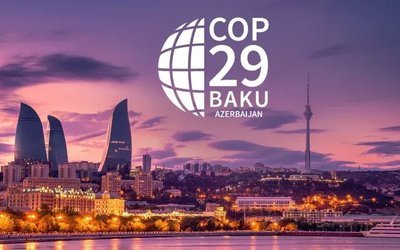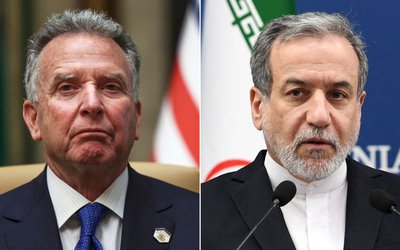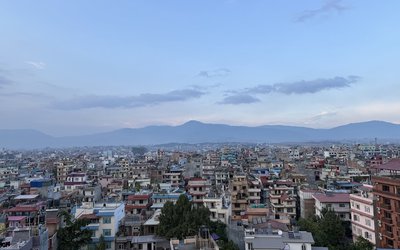
Institutional development in policy was identified as a major need for Nepal for implementation of policies.Co-ordination among the governmental bodies and lack of local level vision was also identified as a gap.Behavioral Change was identified as the most important step towards bigger changes.
This is the message 7th Kathmandu Sustainable Urban Mobility Forum (KSUMF VII) draw after concluding forum.
Clean Energy Nepal (CEN)/ Clean Air Network Nepal (CANN) in collaboration with the United Nations Environment Program (UNEP) and Institute for Advanced Sustainable Studies (IASS) organized the "7th Kathmandu Sustainable Urban Mobility Forum (KSUMF VII)" on 10th August 2018 in Kathmandu.
The forum also said that the fast Adaptation of Electric Mobility was concluded to be progressive but support from government regarding tax exemption and subsidies was still discussed to be lacking.
Seventh Kathmandu Sustainable Urban Mobility Forum expressed that the Clean Transport is not only about electric vehicles but also about non-motorized transport such as cycling so these issues need to be considered as well’, one of the participants expressed. The participants also expressed that the transportation system should not only be looked at from the environmental perspective but also the economic perspective for sustainability.
KSUMF is an annual flagship event of Clean Energy Nepal (CEN) that has been bringing the stakeholders together to initiate policy dialogue and collaboration for sustainable urban mobility and better air quality in the Valley since 2011. For this year, the forum emphasized the discussion on ‘Policy needs to shift towards Efficient Vehicles and Clean Transport System’.
The technical session of the forum comprised of 5 presentations wherein the presenters discussed about the transportation system in Nepal and the growing need for shift towards efficient vehicles and clean transport system.
Dr. Maheswor Rupakheti, Scientific Project Leader at IASS Postdam presented the current scenario ofair pollution and transport in Nepal and how data from the studies can be an evidence to make shift towards clean transport system. He said’ Research is a basis for designing the mitigation measures and policy makers should consider data while drafting policy intervention’.
Nisha Thakur, Department of Transport Management presented the Positions and Plans of Government towards clean transport system. She said,’Government has shown strong commitment towards environment friendly transport management by drafting excellent policies but the government needs strong support from all sectors towards effective implementation of these policies’.
Dr. Thusitha Sugathapala, University of Moratuwa provided an overview of the transportation system in Sri Lanka and how they are shifting towards cleaner energy and transport system. He also highlighted the key policy interventions and challenges to make the shift.Mr. RajanThapa, Clean Energy Nepal highlighted the existing challenges for Nepal and also the opportunities to make the shift towards efficient vehicles and clean transport system. Jyoti Prajapati, Research Fellow, IASS provided and overview of Low Carbon Sustainable Transport around the world and what might be the best possible option for Kathmandu Valley.
According to a press release issued by CEN, the technical session was followed by a Panel Discussion where in the Panel of Experts discussed what is hindering the implementation of existing policies and what the role of various sectors to establish an efficient, sustainable and clean transport system.
The panel comprised of Dr. Padma Bahadur Shahi, Technical Advisor, Nepal India Trade and Transport Project, DoTM, Govinda Prasad Lamichhane, Environmental Inspector, Department of Environment, Dr. Thusitha Sugathapala, University of Moratwa, Dr. Maheswor Rupakheti, IASS and Umesh Raj Shrestha, Chairman, Electric Vehicle Association Nepal facilitated by Anobha Gurung, postdoctoral research scientist, University of Texas and ICIMOD.
The forum concluded with closing remarks from BhusanTuladher, Board Chair, Clean Energy Nepal urging everyone to take one step towards change for better tomorrow.
Around 45 participants from governmental agencies, non- governmental agencies, academia, transport entrepreneurs, urban/transport planners, research institutions and media attended the program.
- Weather Forecast: Partly To Generally Cloudy With Brief Rain In Kathmandu, Pokhara And Janakpur
- Apr 20, 2025
- Korean Embassy Hosts FRIENDS OF KOREA 2025 Event in Kathmandu
- Apr 19, 2025
- Weather Forecast: Partly To Generally Cloudy With Rain And Thunder Acrosss Nepal
- Apr 19, 2025
- Minister Dahal Directed To Complete The Dannune Portion Of Road Before Monsoon
- Apr 18, 2025
- Kanchenjunga Diamond Festival Being Celebrated From Today To Mark The 70th Anniversary Of The First Successful Ascent
- Apr 18, 2025















